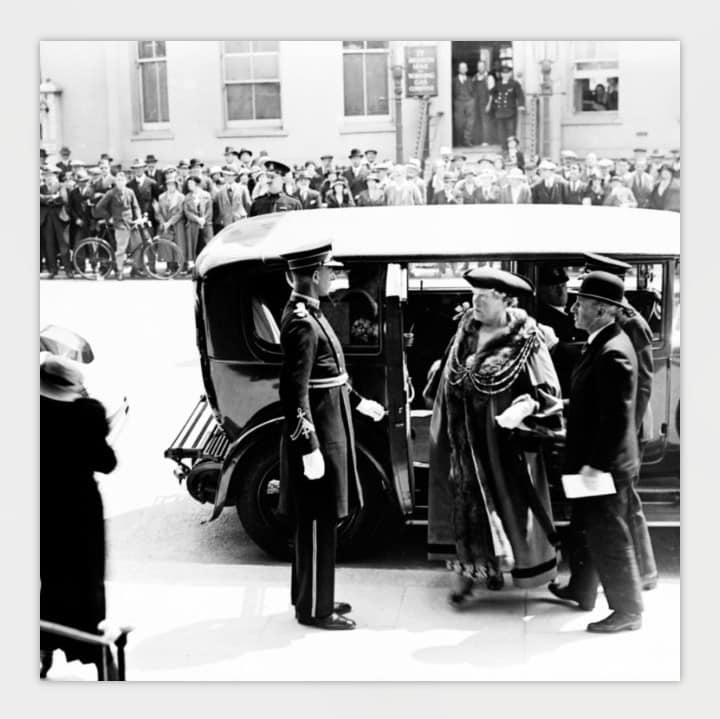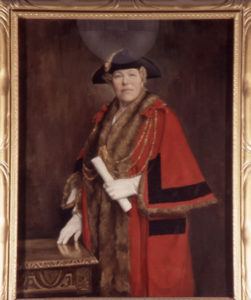Margaret Hardy was the first female mayor of Brighton. ‘I am a Brightonian’, she said upon starting her term, ‘and Brighton knows the best and worst of me, and still wishes me to take this position. I will do my very best.’ She was elected in 1933, having served since 1928 as Councillor for ‘Hollibury ward’. She had built up a strong record of public service as a local magistrate and member of the Steyning Board of Guardians, which was responsible for the administration of the workhouse and Children’s Home in Shoreham. As the opportunities for women grew during her lifetime, she expanded her endeavours and worked hard to improve the lives of the poor and unemployed in Sussex.
Earlier in life she went to France during the First World War as an unpaid volunteer with the YMCA Women’s Auxilliary, which ran welfare centres for soldiers behind the Front, winning an MBE for ‘her devoted service in France to the troops.’ A lifelong member of the Baptist Church, she became president of the local Sunday School Union, and from 1922 was the President of the National Free Church Women’s Council. She also became the first woman to hold the position of president of the Brighton, Hove and Central Sussex Sunday School Union.
Margaret brought her own stamp to the Mayoral role. She rejected the title ‘lady-mayor’, explaining to the Sussex Daily News ‘(The word) ‘Lady’ savours so much of class distinction, ‘woman’ is so embracing, so real. That is want I want to be to the people of Brighton, something real, a real friend, not a mere figurehead.’ This was reflected in her work, championing many causes and organisations in Brighton to alleviate hardship. She helped out in soup kitchens, raised funds for the New Sussex Hospital for Women, the Sussex Maternity and Women’s Hospital and Brighton’s Unemployed Centre.


Margaret was very popular locally, presenting herself as ‘Brighton’s Useful Aunt’. She was clearly a likeable character, described by the local press of the day as being ‘largehearted, genial and tolerant, and ‘an exceptionally cultivated, thoughtful and witty speaker.’ Interestingly, there is a report of her being invited onto the board of the Brighton & Sussex Building Society in 1929, an unusual distinction in that era.
She continued to be a public figure after her term as Mayor, and became an Alderman. She served for many years on the Education Committee, and in keeping with this interest, in 1945 a local girls’ school was named after her: The Margaret Hardy Secondary School. Many locals still remember the school affectionately as ‘Maggie Aggie’, though in 1989 it was merged with another and her name was dropped from the title. This has contributed to her falling these days into relative obscurity. Her resounding success as Mayor would have made many people re-think their ideas as to women’s suitability for positions of power, and opened doors for others.
Sue Delafons, with thanks to Gerry Holloway and Louise Peskett for research.